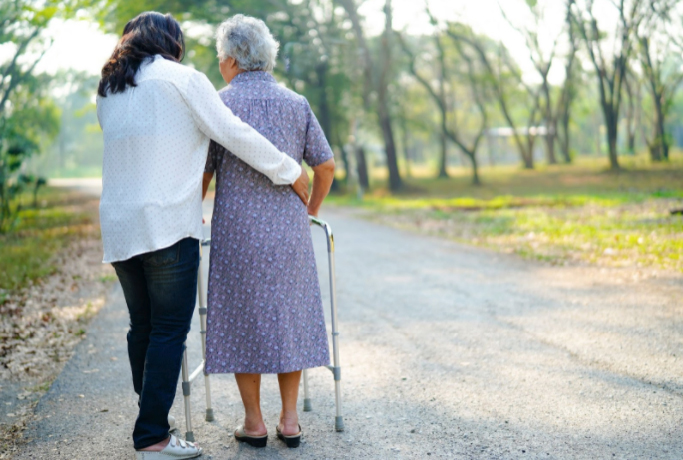
What Does a PCA Do?
Personal care aides are trained to provide help with patients’ daily living functions, including:
- Maintaining patients’ personal hygiene
- Handling their incontinence and toileting needs
- Helping them cope with their mobility issues
- Preparing meals and assisting patients who have difficulty feeding themselves
- Running errands and basic homemaking
- Helping patients with their hobbies
PCA vs HHA vs CNA
How do PCAs differ from other healthcare positions such as certified nursing assistants (CNAs) and home health aides (HHAs)?
The services that PCAs provide are non-medical in nature. Unlike PCAs, HHAs can perform minor medical duties on top of helping with patients’ day-to-day activities. These include checking vital signs, administering medications, and changing wound dressing.
While both can work independently, they are still subject to the supervision of a licensed healthcare practitioner (e.g., registered nurse or RN, licensed practical nurse or LPN).
Compared with HHAs, CNAs are more equipped to do medical tasks. They perform basic nursing services under the guidance of RNs or LPNs. Because of their more advanced work, CNAs are required to undergo a state-approved training program and get a certification, which they need to renew every two years.
How to Be a PCA
Educational requirements to be hired as a PCA vary by state and institution. But at the very least, a high school diploma or any equivalent is needed. Some also require their PCAs to complete a training program.
In New York, professionals who will perform personal care tasks need to complete 40 hours of training. Across the state, a number of community colleges and vocational schools provide training programs for PCAs.
During the training, PCA aspirants will attend lectures and complete hands-on clinical experience to learn how to provide proper care for patients. At the end of the program, they will receive a certificate of completion from their training provider.
In the US, PCAs are not required to have a license as it is their supervising RNs or LPNs who will perform the tasks that demand a licensed professional.
Where do PCAs Work
The majority of PCAs work in their patients’ respective private homes. However, they also offer their services in specialized healthcare settings, including adult homes, assisted living residences, congregate care services, and facilities that have adult day health programs.
They can also work in hospitals, doctors’ offices, and nursing homes.
What is the Job Outlook for PCAs
As per the US Bureau of Labor Statistics (BLS), employment opportunities for HHAs and PCAs are expected to grow 34% by 2029. As of 2019, there are around 3.4 million jobs for both healthcare positions.
On average, PCAs in New York earn US$28,992 per year, which is higher than the US$27,080 median annual wage in the US.
PCAs who want to level up their healthcare career can complete PCA to HHA upgrade programs. After gaining experience as HHAs, they can explore more career opportunities, including becoming CNAs, RNs, LPNs, and medical assistants.
Learn Relevant PCA Knowledge and Skills
Personal care aides provide quality and tailored care to aging and ill individuals. And to become one, you must have technical knowledge and skills on how to properly assist patients. Just as important are interpersonal and communication skills that will help you maintain good rapport with your clients.
At the NY Healthcare School, we offer a training program designed to produce competent and reliable PCAs. Our course comprises 40 clock hours, including 18 hours of lecture and 22 hours of lab.
For more details on how to be a PCA, check out our PCA training program. You may also reach us at (718) 840-3366 or school@nyhealthcareschool.com.